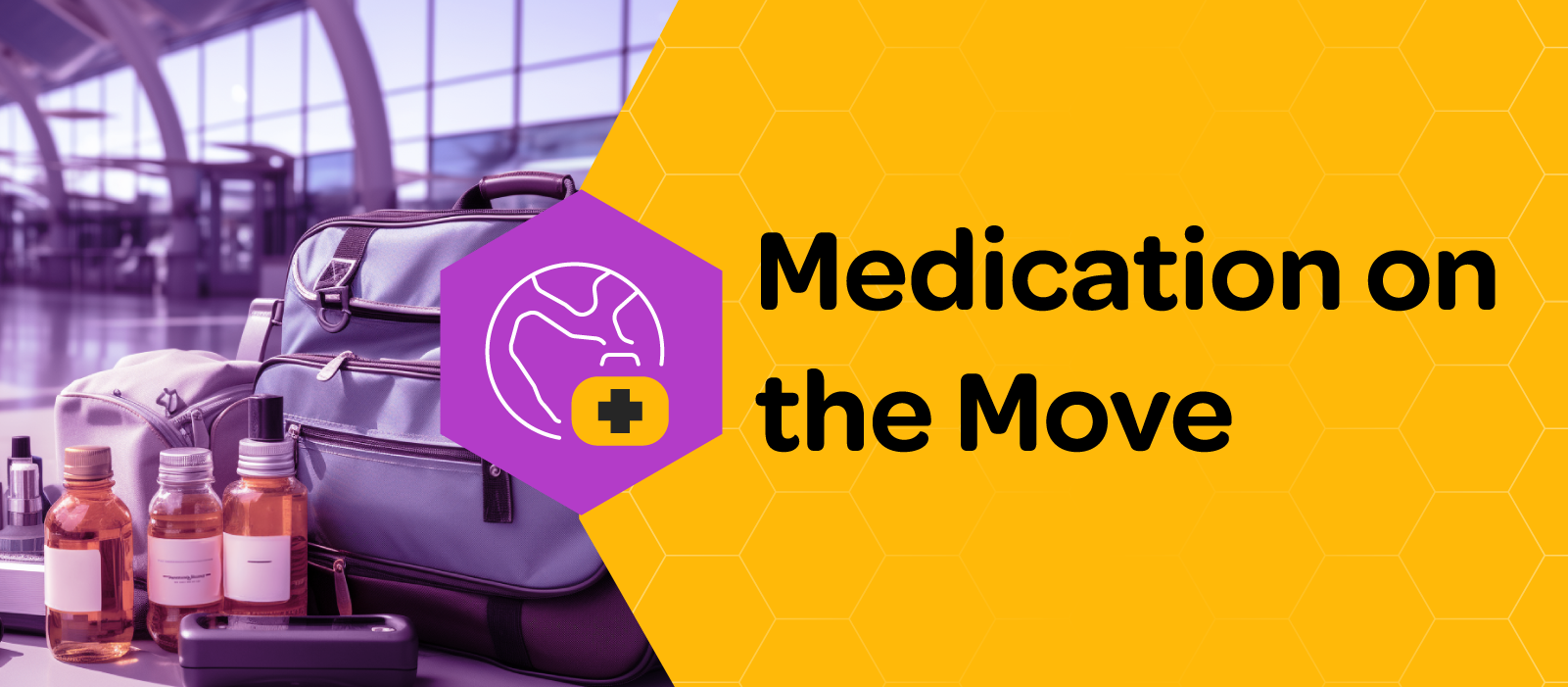What’s the Buzz
The Bee Healthy Blog
Prescription Pitfalls: Medication Confiscation While Traveling

Traveling with medication is a challenge many face, yet it remains an underexplored aspect of travel. At BuzzRx, we sought to understand this dilemma by surveying 1,245 Americans who travel with essential medications to find out about their experience. How often do medications get confiscated, what kinds, and why? How can these incidents interfere with your travel plans? In this article, we’ll walk through our findings and offer insight for travelers who need to bring medication with them.
Key Takeaways
-
1 in 10 people have had their medication confiscated during travel.
-
Nearly 50% of travelers forget to bring their prescription documentation.
-
54% have hidden their medication when traveling to avoid confiscation.
-
Nearly 1 in 6 whose medication was confiscated had to pay full price for a replacement prescription.
-
1 in 9 travelers had to cancel trips due to their medication being confiscated.
Staying Healthy on the Go
First, we’ll cover what types of medication people tend to travel with and share the measures they’ve taken to keep them safe from confiscation.

One-tenth of travelers have had their medication confiscated while traveling. This issue was particularly prevalent among Gen Z — 17% of these respondents have suffered the experience. Sometimes, all you need is prescription documentation, but unfortunately, nearly half of all travelers have simply forgotten to bring theirs.

Concern over medication seizure has pushed 54% of travelers to think beyond pill cases and get creative in hiding their prescriptions, with 15% of Gen Z having used their socks as a hiding place. However, they were also far more likely to get their medication taken compared to baby boomers, who were 88% less likely than Gen Z to have reported such an incident. Still, of the roughly 1 in 8 travelers who have managed to carry medical cannabis with them on their journeys, only 11% did so without encountering any issues.
Consequences of Medication Confiscation
Next, we’ll lay out the details of where and why medication confiscations occur, revealing a pattern of challenges that travelers face.

Medication confiscations have occurred almost equally in international (44%) and domestic (41%) travel contexts, with 15% of travelers facing this issue in both situations. Air travel greatly increased the risk, with a 356% higher likelihood of medication confiscation compared to other transportation modes.
The primary reasons for confiscation were security concerns (41%), exceeding quantity limits (27%), and random inspections (26%), along with lack of proper documentation (26%). Some of these confiscations (17%) caused people to miss their flights. This issue has affected more men (23%) than women (8%).
Having medication confiscated can lead to significant disruptions, as 1 in 9 travelers have canceled their trips as a result. The financial impacts can be substantial: nearly 2 in 5 travelers incurred expenses of $100 or more, and about 1 in 6 paid full price for replacement prescriptions.
The Health Toll of Missing Meds
The impact of medication confiscation on travelers extends beyond financial burdens and logistical challenges — it can also affect health and travel plans.

Two-thirds of travelers who experienced medication confiscation reported negative health effects due to going without their medications. Among them, 37% noted a decline in their mental health as a result. Furthermore, 15% of travelers found themselves in a situation severe enough to require additional medical assistance, emphasizing the potential health crises that can arise from disrupted medication schedules.
Medication Matters
Our insights spotlight the challenges of traveling with medication, from pesky confiscations to substantial financial and health impacts. There’s a critical need for increased awareness and preparedness among travelers, plus a better balance between security and the well-being of travelers reliant on medication. It’s a stark reminder that for many, these journeys involve more than just reaching a destination — they can also require extra measures to preserve their health along the way.
Methodology
For this campaign, we conducted a survey of 1,245 Americans who travel with medication. Among them, 48% were women, 50% were men, and 2% identified as non-binary. The generational breakdown is as follows:
-
Gen Z: 15%
-
Millennials: 53%
-
Gen X: 25%
-
Baby boomers 7%
About BuzzRx
BuzzRx is a prescription discount service that offers free, ready-to-use prescription discount cards to help individuals save on their medications. With a focus on affordability and accessibility, BuzzRx provides significant discounts on prescription drugs at participating pharmacies, making healthcare more affordable for everyone.
Fair Use Statement
If you find our study on the challenges of traveling with medication insightful, feel free to share it for noncommercial purposes. Please link back to this page to allow access to our full report and methodology.

SOCIAL